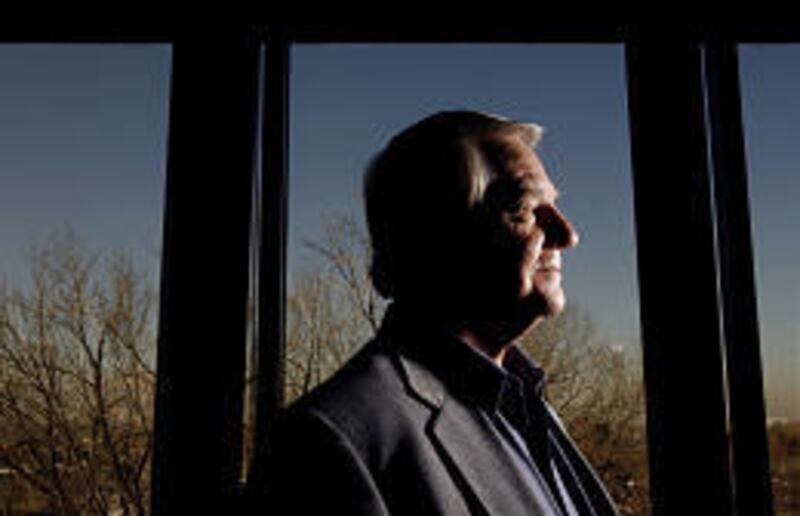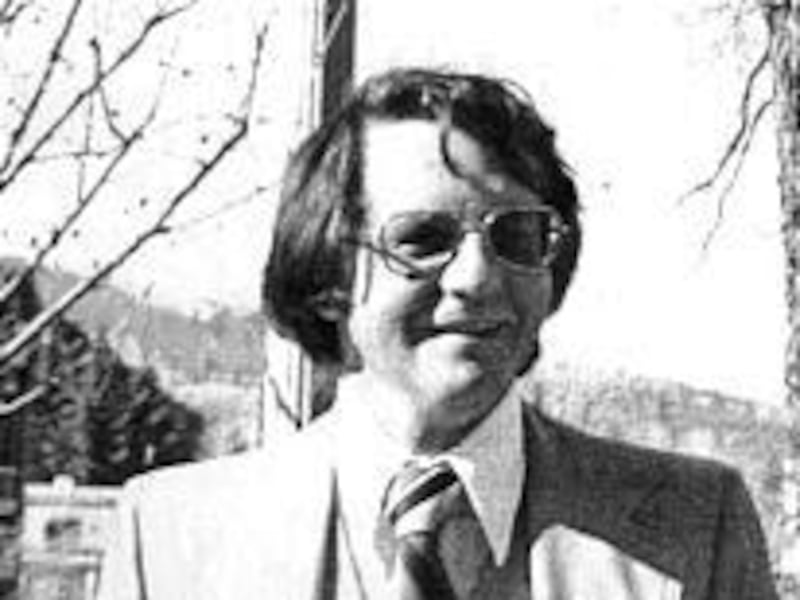He had been a prosecutor for years, but it was not until David Yocom took on serial killer Ted Bundy in 1975 that the spotlight really hit.
"That case attracted international attention," Yocom recalls of the successful kidnapping prosecution. "It was the first time he'd gone on trial for anything."
After that came the murderous polygamist Ervil LeBaron, who engineered the fatal shooting of another polygamist leader, homeopathic doctor Rulon Allred. There also was a stint of criminal defense work — but that, too, could be high profile, especially with clients such as racist serial murderer Joseph Paul Franklin, who shot two black joggers to death in Liberty Park.
Yocom's legal career spans 41 years, but the prosecution part began with a part-time summer job in 1969 at the request of Jay Banks, who later became a judge. Yocom's task? Catch up on a backlog of cases.
The work turned out to be more interesting than he expected. "I was a struggling young attorney, I had been in private practice for four years, and that became the beginning of my prosecutorial career."
Over time, Yocom worked in the then-Salt Lake County Attorney's Office, eventually became a prosecutor in the blended Salt Lake County District Attorney's Office, worked in private practice for a while, won and lost elections, and eventually served as district attorney for a total of 16 years. That era has come to end with Yocom's decision two years ago to not seek re-election in 2006.
Yocom has prosecuted many murders, including capital cases, and quite possibly is one of most experienced trial attorneys in Utah when it comes to death penalty cases.
When he was not in the courtroom, as district attorney he presided over an office that handled its share of headline-making cases: Addam Swapp, Mark Hofmann, Richard Worthington and, more recently, Brian David Mitchell, Wanda Barzee, Mark Hacking and Craig Gregerson.
These days, however, Yocom has embraced retirement. He is content to be out of the limelight and focused on family, friends and golf. He and his wife, Linda, have a home in St. George and plan to spend summers in Salt Lake City as well as travel frequently to see their four grown sons and their families.
There are no plans to go into private practice. No plans to write a book.
"I am totally retired," Yocom declared. "I have a golf cart in the garage waiting for me.
"I'm 68," Yocom said. "I'm ready for it."
Things have certainly changed over the years in the criminal justice system, Yocom said recently, surveying his office full of packing boxes and numerous awards.
"When I started, it was typewriters and copy paper. Now we're trying to develop a paperless system."
Among other things, the office has grown. There were seven deputy district attorneys and a number of others, perhaps 20 in all, working in the former county attorney's office in the late '60s. Today the office has a staff of more than 200 people, including 89 lawyers and various investigators, paralegals and victim counselors.
Another challenge has been keeping up with innovations in the criminal justice system. Many new U.S. Supreme Court rulings have changed how cases are handled. And the improvements in such things as DNA testing virtually revolutionized law enforcement.
"If we had had that DNA when Ted Bundy was on his rampage, he would have been facing the death penalty here and in Colorado and in Washington," Yocom said.
Bundy is now known as the notorious serial killer of at least 25 young girls and women — probably many more — in a bloody crime spree that spanned four states.
But in 1975, Bundy was nothing more than a suspicious character with a clean record, even though police throughout the West were convinced he was a vicious killer.
For Yocom, the pressure was on when Bundy went to trial here.
"Everyone recognized that I had to be successful or Bundy would go free and kill again," Yocom said in a 1998 interview.
Bundy was not charged with murder in Utah but a different crime: kidnapping Carol DaRonch the previous year from a Murray shopping mall after posing as a police officer to lure her into his car. Despite having one wrist trapped in Bundy's handcuffs, DaRonch managed to fling herself out of his moving car and got away.
"Our case was solid enough to file and go to trial on," Yocom insists today, and history proved him right, with a Utah jury returning the first felony conviction for Bundy.
The victory, in a sense, was short-lived. Bundy soon after escaped from a Colorado jail where he was awaiting a murder trial and, tragically, managed to elude police long enough to kill several more people before being convicted of murder and executed in 1989 in Florida — 14 years after his Utah conviction.
Meanwhile, Yocom's career continued. In 1979-80 came the trials of LeBaron and one of his plural wives, Rena Chynoweth, for the shooting death of Allred. LeBaron was convicted of ordering the hit, was given a life sentence by a judge and died in prison. Chynoweth, on the other hand, was acquitted but later admitted she pulled the trigger in her autobiography.
Yocom speaks in an almost philosophical manner about courtroom defeats, but he was dismayed when Chynoweth got off. "I knew we had the right person. The jury just didn't agree with us."
Yocom left the prosecutor's office in 1979 for private practice doing criminal defense work but got a quick and commanding phone call one day from now-Judge Jay Banks. "He said, 'Do you have any conflicts with Joseph Paul Franklin? Well, you're appointed to represent him — get over here on it,"' Yocom recalls.
Franklin, who had been tried in federal court and gotten two consecutive life sentences for violating the civil rights of the two black joggers he shot dead, had already gone through three sets of attorneys. "He had punched them all out or found a conflict or spit on them."
The only reason Franklin faced state charges was to get the death penalty since the federal government did not have capital punishment at the time. "It was pretty difficult," Yocom said. "The whole objective of this was to enforce the death penalty."
In this case, Franklin was found guilty of two aggravated murders, but the jury could not agree during the penalty phase so he got two more life sentences.
"He was an interesting client to represent. He could be as friendly and pleasant as can be, or as intimidating as can be. He always wanted to test you — to make sure you were tough enough to represent him. He pinned me up against the bars once," Yocom said. "From then on, I always had a police investigator with me in case he got mad at me."
Yocom expresses no regrets about cases his office has filed or tried. However, he does feel he failed at one thing: getting a permanent home for prosecutors downtown, all under one roof and close to the courthouse. Leasing various offices wastes millions of taxpayer dollars, he insists, and is impractical for the office's employees.
Any advice for future prosecutors?
"The one thing that's important in this office is to maintain your independence as an elected official and not be swayed from political influences, constituents, donors," he said. "It's important when you're elected by the people to represent the people first, before the mayor or sheriff or auditor. You have to remember the people are your clients, and that's what you're there to do."
E-mail: lindat@desnews.com






